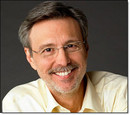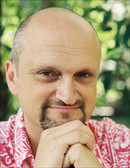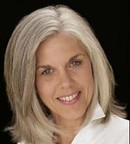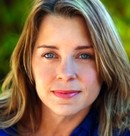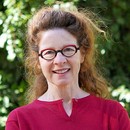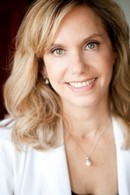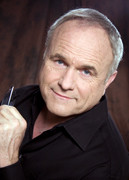Conscious Living: Answering the Hero’s Call to Adventure!
“We must be willing to let go of the life we planned so as to have the life that is waiting for us.” ― Joseph Campbell
“If you can see your path laid out in front of you step by step, you know it’s not your path. Your own path you make with every step you take. That’s why it’s your path.” ― Joseph Campbell
By Lisa Reagan
What are we really doing when we decide to live and parent consciously?
In longing for a more peaceful and healthy life, what drives us to defy the chanted “You’ll spoil that baby if you pick it up,” or reject the GMO food, the overused antibiotic or weapons of mass distraction, and say, “No, I think there’s another way”? Could it be that in these seemingly small but life-affirming gestures the parent is “following the hero’s call”?
One of the seminal works of the 20th century, Joseph Campbell’s The Hero with a Thousand Faces, presents the revolutionary insights of the Hero’s Journey, a universal motif of adventure and transformation that runs through virtually all of the world’s mythic traditions—and our daily lives. As Campbell discovered, there is really only ONE story at the core of all of our stories.
The impact of the Hero’s Journey cannot be underestimated, as its archetypal model influences modern storytelling, and storytelling is how we make sense of our lives and the world around us. George Lucas credits Campbell’s book as the inspiration for Star Wars, our modern mythology of personal and world transformation.
As a seventh grader in 1977, I vividly remember sitting slack-jawed in a dark theater watching Luke Skywalker run out of his uncle’s desert home in frustration, stand on a windy dune and stare wistfully at Tatooine’s two setting suns. (See the video below.) Luke was hearing the hero’s call to a transformative adventure. It meant rejecting everything that did not support his heart’s wisdom, even though he had no idea what it meant to follow that call, or where it would lead him. I still play that scene on YouTube when I want to remember the enchanted feeling of the hero’s call to adventure. It is magical. And so is our brief, transformative adventure with our children.
What calls us as parents to envision a better world for our children and act on our heart’s wisdom? What is the cost of rejecting our culture? Should we think of ourselves as victims of an oppressive world and give up, or follow the call that will lead us through a journey that promises to transform ourselves and the world as we go. And that last part? That is not a fairy tale. That part is true, especially for parents who read Kindred.
Kindred readers belong to the segment of the population who are actively seeking to tip the world toward peace and sustainability through their individual and conscious living choices. Cultural Creatives were identified for the first time in 2000 by social scientists Paul H. Ray and Sherry Ruth Anderson in their research-based book The Cultural Creatives: How 50 Million People Are Changing the World. Ray and Anderson defined Cultural Creatives as people who “care deeply about ecology and saving the planet, about relationships, peace, social justice, and about self actualization, spirituality and self-expression. Surprisingly, they are both inner-directed and socially concerned; they’re activists, volunteers and contributors to good causes more than other Americans.”
If there are so many of us—millions—why doesn’t it seem that way? Ray and Anderson answer: “However, because they’ve been so invisible in American life, Cultural Creatives themselves are astonished to find out how many share both their values and their way of life. Once they realize their numbers, their impact on American life promises to be enormous, shaping a new agenda for the twenty-first century. What makes the appearance of the Cultural Creatives especially timely today is that our civilization is in the midst of an epochal change, caught between globalization, accelerating technologies and a deteriorating planetary ecology. A creative minority can have enormous leverage to carry us into a new renaissance instead of a disastrous fall.”
So, we are invisible in our culture to one another unless we make an effort to find each other? This effort to find and create community consciously can feel awkward when we labor under the industrial world’s value that “going it alone” is heroic. But looking at Campbell’s model, we can see that for thousands of years, heroes have always been surrounded by beloved companions on their adventures. Tragically, studies show that while our culture is profoundly lacking in social connections of any kind, parents in particular are the least likely group to create social bonds.
For example, the oft-cited Better Together Report by the Saguaro Seminar of Harvard University’s John F. Kennedy School of Government warns that “the national stockpile of ‘social capital’—our reserve of personal bonds and fellowship—is seriously depleted.” And the Building Strong Families Initiative shows that most parents are, just as predicted, “going it alone”—even though the benefits of a social support system include better parent-child relationships and better school performance for children.
The study also showed that lonely parents were more likely to have lonely children.
Isolation and lack of a support system has been identified as a central contributing factor to postpartum depression in new mothers and fathers. Yes, even fathers suffer from lack of community: “Despite media images, as many as 1 in 4 dads experience postpartum depression. Having no visible examples in our culture of men like this, a father with postpartum depression usually suffers in isolation —sure that he’s the only one. And, of course—with no examples to look to—he doesn’t have any idea what to do about it,” says psychotherapist Dr. Will Courtenay of PostPartumMen.com. (See more about Why Dads Leave.)
Echoing science’s recognition of the necessity of community for wellness, Campbell’s Hero’s Journey illustrates the need for the community of beloved companions. What Hollywood epic doesn’t show that really, a hero would never make it through the crisis without their version of Han Solo and Princess Leia for backup?
In addition to needing companions on our journey, heroes also need to heed the advice of wise guides. In seeking out a few Yodas to talk with us about the importance of heeding the hero’s call and creating community, I asked a few wise guides to share their insights.
![Thom Hartman image]() Thom Hartman
Thom Hartman
Our first Yoda, Thom Hartmann, author of Threshold: The Crisis of Western Culture, says the obstacle to creating community is larger than some of us care to imagine or admit. When we say “our culture doesn’t support wellness,” this acknowledgement can sound like an understatement or an impossibility, depending upon your worldview. But Hartmann says parenting today, especially conscious parenting, is like playing cards underwater.
“If you were sitting next to a pool and playing a game of cards, you would enjoy the game. If you tried to play that same game in the pool, underwater, it wouldn’t work. I know that is an imperfect metaphor, but really, you could say that our culture is interfering with our ability to play the game of life,” says Hartmann.
In his daily radio show, The Big Picture, and through more than two dozen books in 30 years, Hartmann has explored avenues to a healthy renewal of our culture. His observation is that most people, parents included, don’t see this big picture and therefore do not understand the seriousness of what they are up against. In meeting together as strangers in a group for the first time, Hartmann advocates that we “focus on what we have in common, which is our commons. Our air, water, soil, food and shared experiences unite us, as they are the foundation for our wellness.”
![Robin Grille image]() Robin Grille
Robin Grille
Without a big-picture view, without awareness that conscious parenting can be a hero’s journey and the greatest adventure of our lives, many parents will believe themselves to be alone in their frustrations—especially Cultural Creative parents who are going against the grain of mainstream values. It is often these parents whom psychotherapist Robin Grille tends to in his Sydney, Australia, practice.
Grille says that since he wrote the book Parenting for a Peaceful World, part of his practice is spent counseling parents who are trying to do attachment parenting and conscious living in a disconnected world without understanding the big-picture truth of what that means. “Parents who meet together in groups need to be honest with each other about how hard parenting in our culture can be,” says Grille, also author of Heart to Heart Parenting Nurturing Your Child’s Emotional Intelligence from Conception to School Age.
“No pair of adults can match a child’s voracious appetite for almost endless play, attention, protection and nurturance. Sooner or later, the most robust adult is outlasted by the child’s emotional stamina. When exhaustion sours the parenting experience, someone usually gets the blame—the child is ‘too demanding,’ or the parent is ‘not good enough.’ The basic building block of Western culture—the isolated ‘nuclear family’—is a wrong turn in history, and its time for revision has come,” says Grille. “The sooner we all come to terms with this liberating truth, the happier this planet will be: Human parents are simply not designed to care for children without the ongoing help and support of a close-knit and intimate community, tribe, or extended family.”
![Lysa Parker image]() Lysa Parker
Lysa Parker
Lysa Parker, cofounder of Attachment Parenting International, shares with us how to begin. “I believe that awakening our consciousness begins with questioning culturally based assumptions about ourselves and how the world works,” says Parker. “We grow up steeped in a world of stories, myths and misconceptions about who we are, what we should be doing and when, often never realizing our true potential. When I decided to become a mother I began to question everything from birth to parenting practices. One striking example of a myth that is pervasive in the childrearing world is ‘Don’t pick up the baby because you’ll spoil it.’ My friend and colleague, Barbara Nicholson, and I began to question that statement by asking if that was really true. We wanted to know not only if that was true, but who originated it, a finding that surprised both of us.
“John B. Watson, considered ‘the father of behaviorism,’ wrote a parenting book in the late 1920s called The Psychological Care of Infants and Young Children,” Parker explains. “He sternly warned mothers not to become too attached to their children, not to kiss them or hold them unless absolutely necessary. New research in neuroscience and child development informs us that we not only need to pick up a crying baby, but that it is essential for the baby’s optimal growth.”
![Cassandra Vieten, PhD image]() Cassandra Vieten, PhD
Cassandra Vieten, PhD
What are the benefits of finding companions for our journey? Cassandra Vieten, author of Mindful Motherhood: Practical Tools for Staying Sane During Pregnancy and Your Child’s First Year, says that supportive community is one of the most important things parents can have to stay balanced and grow a healthy family.
“We must create a tribe of others who can help us stay awake and aware, and true to our deepest instincts, values and goals as parents, especially when choosing a new way to parent, or if you have a non-traditional family (divorced, single parent, LGBT or older parents),” says Vieten, a psychologist, mind-body medicine researcher and mom. “Whether in a moms or dads group, through babysitting exchanges with like-minded parents, or increasingly on the Internet, it’s important to have connections that can support us when we feel uncertain or overwhelmed.”
![Suzanne Arms image]() Suzanne Arms
Suzanne Arms
While neuroscience now shows the necessity of responding to our children for optimal brain development and social science shows us that the ideal ratio for raising children is four adults to one child, neither of these foundations for wellness are made possible by modern culture. Suzanne Arms, founder of Birthing the Future, replies, “As the size of families has shrunk from extended and multigenerational down to a mere two parents or just one—and exhausted by jobs outside the home—the urgency for parents to have community around them increases. It’s imperative today that we reach out and create that community of support. It’s not just for ourselves, but for our children.
“When parents raise children in isolation, our kids get not only the best of what we try to offer, but also the worst of our downside: our anxiety, our frustrations, our exhaustion and our bad tempers,” continues Arms. “They deserve so much better. Remember, we are our children’s mirror as well as their window to the world, when they are young. The expressions on our faces, and our body language as we speak to them and to others in their presence, tell them how they should feel about themselves.”
![Lauren Feder, MD image]() Lauren Feder, MD
Lauren Feder, MD
What can we find in community? “Community offers parents a common unity in which they can exchange ideas, information and provide support,” says Lauren Feder, M.D., an integrative family physician, certified homeopath, and president of the Holistic Pediatric Alliance. “The guidance and support that I received from other families and practitioners in the holistic community have given me the confidence to have a tremendous and authentic birthing and parenting experience.”
![Michael Mendizza image]() Michael Mendizza
Michael Mendizza
How do we find the courage to answer the hero’s call and follow our hearts? “No hero I ever heard of did as he or she was told. In mythic terms this means leaving the cultural nest, walking on the edges of the unknown and there discovering what we are truly made of, which is nothing less than miraculous,” said Michael Mendizza, founder of Touch the Future.
![Conscious Living: Following the Hero's Call to Adventure image]() Conscious Living: Following the Hero’s Call to Adventure
Conscious Living: Following the Hero’s Call to Adventure
I began this column by asking, “What is conscious living?”
An industrial mindset would demand a prescribed list of to-dos and then check the boxes. Done. Go back to sleep.
But a holistic heart, one that is listening to a call emanating from just the other side of the mechanical drone of “put the baby down,” dark GMO forests, pompous practitioners, mountains of grimy laundry and well earned exhaustion, knows. It already knows. There is nothing anyone can tell it. But we can find beloved companions to share the journey, keep each other awake, tell our stories around our internet campfires…and, who knows? Maybe one day find treasure in the arms of our grateful children.


